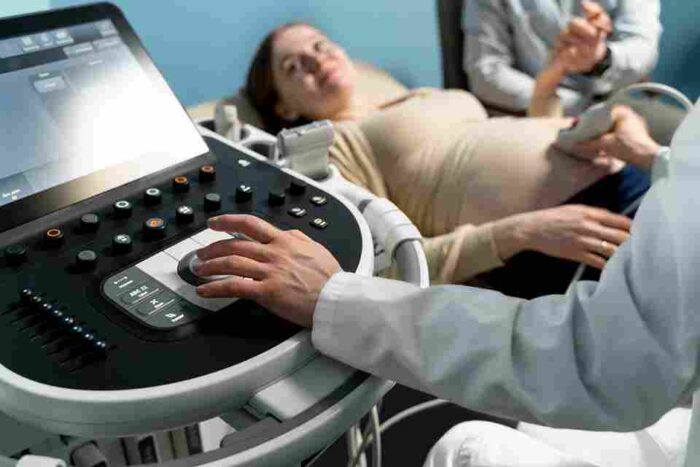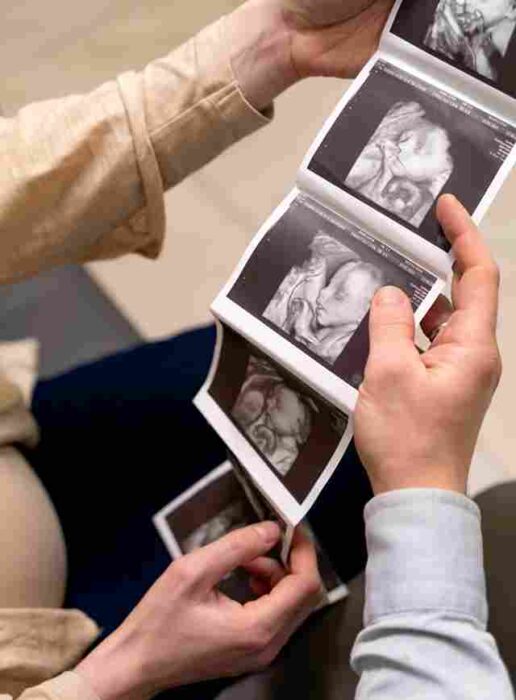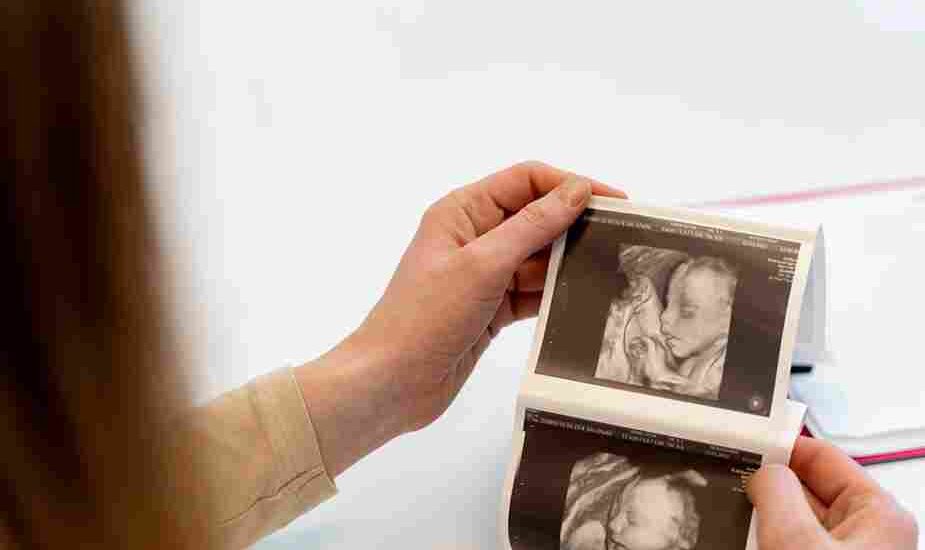Fetal echocardiography is a specialised ultrasound performed during pregnancy to evaluate the position, size, structure, function, and rhythm of the unborn baby’s heart. One of the benefits of fetal echocardiography is prenatal diagnosis of congenital heart disease (CHD). Let’s explore this in detail.
Pregnancy is a journey filled with joy and anticipation, as expectant parents await the arrival of their little one. During this period, prenatal care is critical in ensuring the health and well-being of both the mother and the unborn baby. One of the most essential parts of prenatal care is fetal echocardiography, a specialised ultrasound test that focuses on monitoring the developing heart of the fetus.
Today, we plan to explore the role of fetal echocardiography in diagnosing heart abnormalities, highlighting its importance and potential benefits.
Understanding Fetal Echocardiography: What is It?
Fetal Echo is a non-invasive imaging technique that allows the doctor to better see the structure, position, and function of your unborn child’s heart. Usually done between 18 to 24 weeks (second trimester) of pregnancy, the test provides valuable insights about the baby’s developing heart, enabling the early detection and diagnosis of potential fetal heart abnormalities.
The examination uses high-frequency sound waves to create detailed images of the fetal heart, allowing doctors to assess its structure and function better. It also enables healthcare professionals to see the blood flow through the heart to detect any abnormalities in the baby’s blood flow or heartbeat. The chambers, valves, and major blood arteries of the heart are all examined during this evaluation. The ability to perform real-time analysis enhances the diagnostic accuracy of this test.

Role of Fetal Echocardiography in Diagnosing Heart Abnormalities: Key Points
01. Early Detection and Diagnosis
One of the most important functions of a fetal echo scan is its ability to detect heart abnormalities at an early stage of gestation. Early detection is essential as it facilitates appropriate prenatal management and counselling of expectant parents.
02. Comprehensive Evaluation of the Fetal Heart
Fetal echocardiography includes an evaluation of the heart chambers, valves, and major blood vessels. By visualizing these structures, fetal medicine specialists can identify many congenital heart defects such as ventricular septal defects, tetralogy of Fallot, transposition of the great arteries, and others.
03. Diagnostic Accuracy
Fetal echo helps in the precise identification of structural abnormalities, which is crucial for accurate diagnosis and management. The reliable and accurate results obtained through fetal echocardiography also aid in minimizing false positives or false negatives.

04. Risk Assessment and Counseling
Once a heart abnormality is detected through fetal echocardiography, fetal medicine specialists can assess the severity of the condition and its potential impact on the baby’s health. This information is important for counselling expectant parents as it allows for an informed discussion about the available treatment options, potential outcomes, and the need for specialized care after birth. By providing accurate risk assessment, fetal echocardiography empowers parents with the knowledge needed to make well-informed choices regarding their baby’s health.
05. Follow-up Evaluations
In a few cases, fetal echocardiography may necessitate follow-up tests to track the development of cardiac defects during pregnancy. These assessments offer important insights into the progression of the illness by tracking changes in the fetal heart’s structure and function. Fetal medicine experts plan for postpartum care, including prospective surgical procedures, by closely monitoring the baby’s heart. Regular follow-ups guarantee continued assessment and improved results for affected infants.
Conclusion
Fetal echocardiography is a vital tool in the diagnosis of heart abnormalities in unborn babies. It plays a crucial role in the early identification, thorough assessment, and precise diagnosis of congenital cardiac abnormalities.
A fetal Medicine consultant not only helps to diagnose the condition but also provides support to expectant parents, helping them make informed decisions. As medical technology advances, fetal echocardiography will continue to provide comprehensive care to expectant mothers and their precious unborn babies.
Get Fetal Echocardiography in Pune
Consult fetal medicine specialist Dr Tejas Tamhane to help manage complex fetal conditions.

